- In his third term as president of Brazil, Luís Inácio Lula da Silva seeks to bring Brasília closer to non-Western countries.
- The possible expansion of the BRICS and the rapprochement between Brazil and China could weaken Western countries and the dollar.
- Lula’s statements about current critical topics such as the war in Ukraine, cause uproar among State leaders and possible changes in the International System.
During Lula’s first terms as president of Brazil (2003-2010), he sought to strengthen the country’s international relations and expand its global influence. Its foreign policy was characterized by multilateralism, the search for greater autonomy and an emphasis on South-South relations, that is, partnerships with developing countries.
In his third term (2023-2026), the focus of Lula’s foreign policy seems to be on regaining the country’s credibility, predictability and stability in the eyes of the whole world after the Bolsonaro years where Brazil was seen as an international isolated pariah.
Having said that, it is observed that one of the paths being taken by the president is the search for global multipolarization so that there is greater independence, not only of Brazil, but of all countries in the Global South in relation to the West.
However, international politics is a tightrope amid instabilities, controversies and heightened tempers. With that in mind, there is a growing discomfort, especially in the West, through the president’s statements regarding the war in Ukraine, his position on the Taiwan factor and his criticism of the use of the dollar in commercial transactions.

Brazil has a history of neutrality in International Relations
Brazil has a history of seeking neutrality in international relations in certain periods of its history. This stance of neutrality is based mainly on the idea of non-intervention in the internal affairs of other countries and on the search for peace and international cooperation.
One of the most significant milestones of this policy of neutrality occurred during the Second World War (1939-1945). Brazil, under the government of Getúlio Vargas, adopted a position of neutrality and did not get directly involved in the conflict.
Despite this, it maintained commercial relations with allied countries, such as the United States and the United Kingdom, Brazil refrained from joining the Axis powers, such as Nazi Germany and Japan.
This neutral position of Brazil during the war was emphasized by the creation of the slogan “Only God is greater” and by the establishment of measures such as press censorship and the prohibition of public demonstrations in support of any of the conflicting parties. This neutrality was maintained until 1942, when Brazil suffered attacks by German submarines in its territorial waters, which led the country to declare war on the Axis powers.
After the end of the Second World War, Brazil resumed its position of neutrality in international relations, seeking not to rigidly align itself with any bloc or military alliance.
This approach was expressed in Brazilian foreign policy through principles such as non-intervention, peoples’ self-determination, multilateralism and the search for peaceful solutions to conflicts.
During the Cold War, Brazil maintained a foreign policy of non-alignment, seeking to establish relations with countries of different ideologies and blocs, such as the United States, the Soviet Union and Third World countries.
This policy of neutrality and non-alignment allowed Brazil to act as a mediator in regional conflicts, such as in the peace negotiations between Chile and Argentina in the dispute over the Beagle Channel, in 1978.
However, it is important to point out that Brazil has not adopted absolute neutrality at all times in its history.
At certain times, the country took more incisive positions and became more directly involved in international issues, as in the cases of Brazilian participation in the United Nations Peace Missions and in regional integration processes, such as Mercosur.
With the BRICS, Brazil began to leave its position of non-alignment
The BRICS represent a group of countries that includes Brazil, Russia, India, China and South Africa. The term was coined in 2001 by economist Jim O’Neill, from the Goldman Sachs bank, to refer to these five emerging economies that, together, had significant potential for economic growth and global influence.
The group is characterized by its economic, demographic and territorial importance. Together, these countries account for about 41% of the world’s population and approximately 23% of global GDP, in addition to having vast natural resources and a huge consumer market.
The main objective of the BRICS is to promote cooperation and dialogue between its members on economic, political and social issues, in addition to strengthening its position on the international stage. The leaders of these countries meet annually at a summit to discuss issues of common interest and seek ways to deepen cooperation between them.
BRICS areas of cooperation include trade, investment, finance, science and technology, energy, security and sustainable development. The group also aims to promote the reform of international financial institutions, such as the International Monetary Fund (IMF) and the World Bank, to make them more inclusive and representative of the interests of developing countries.
Since its creation, the BRICS have strengthened their global presence and consolidated themselves as an important forum for cooperation and coordination among emerging countries. In addition to the annual summits, the BRICS hold ministerial meetings, business meetings and promote cooperation in specific areas, such as education, health and culture.
Since Lula’s return to the presidency in 2023, other countries have expressed interest in joining the group, including Argentina, the United Arab Emirates, Algeria, Egypt, Bahrain and Indonesia, along with two nations from East Africa and one from West Africa – which were not revealed. Saudi Arabia and Iran are among the countries that formalized the request.
Lula’s trip to China reactivated the hope of the Brazilian left to form a counterweight to the “West” (USA and EU) in the world
President Lula’s trip to China, in April 2023, was marked by messages that indicate the direction of his foreign policy in his third term.
Both in his speeches and in his agendas, Lula demonstrated his intention to continue betting on partnerships with the Global South, at the same time that he expressed criticism of the forums and organizations traditionally influenced or controlled by powers such as the United States.
On that visit, the president declared that he seeks to change the rules of global governance, which have historically favored countries like the United States and Europe.
During a meeting with the president of the Permanent Committee of the National People’s Assembly of China, Zhao Leji, Lula expressed that Brazil’s interests in the relationship with China are not limited only to the commercial aspect, but also to the political one. He emphasized the desire to build a new geopolitics that provides a more representative world governance, giving greater voice to the United Nations.
To reinforce his point of view, Lula defended cooperation with developing countries, criticized traditional multilateral organizations such as the International Monetary Fund (IMF) and questioned the effectiveness of the United Nations (UN).
His statements were also interpreted by some state leaders as a jab at the United States, showing their dissatisfaction with the status quo of the global order.
With regard to the expansion of the BRICS, in addition to its role as a counterweight to Western countries, one of the possible reasons for the current candidacy of several countries is that the bloc strives to keep its members on an equal footing, with rights equals to speak, vote and make decisions. And this is not like most Western alliances, where there is almost always a dominant role that has the strongest voice.
However, the possible enlargement of the BRICS exposes the Cold War mentality of the West, which is difficult to disguise. Since the holding of the BRICS summit in 2022, Western media have been emphasizing “the confrontation between East and West”. Faced with this polarization that only seems to increase, Lula declared that “strengthening relations with China is not breaking with the United States”.
One speech that caused an international uproar and that demonstrates Lula’s position with regard to Taiwan was his declaration of support for Communist China. After the meeting between President Luiz Inácio Lula da Silva and Chinese President Xi Jinping, a joint statement was released in April 2023 in which Brazil claims to consider Taiwan as an inseparable part of Chinese territory.
The document highlights that Brazil firmly adheres to the one-China principle and recognizes the government of the People’s Republic of China as the only legal government representing all of China. This statement goes against the idea of Strategic Ambiguity of the United States (and other countries) in relation to Taiwan, where Washington says that there is only one China, but does not clarify which of the two countries is the legal representative. So the US tries not to favor either side overtly.
Even with the controversial speech, Lula reiterates his commitment to the territorial integrity of the States and supports the peaceful development of relations between the two parts of the Taiwan Strait.
Undoubtedly, China expressed great appreciation towards this position. However, President Joe Biden has said that the US would defend the island militarily if China attacked and it is believed that other Western countries would join in that defense, as has happened in Ukraine. The European Union and several of its member countries also criticized Lula’s speeches.
Another position taken by Lula that caused international repercussions was his speech during the formal inauguration ceremony of former president Dilma Rousseff as head of the BRICS Bank. Speaking to him, the Brazilian president criticized the use of the dollar in international commercial transactions and defended the use of a single currency among the members of the BRICS.
This ideology can be an attractive factor for developing countries and perhaps one of the reasons why so many leaders have applied to the group in 2023.
In addition to the egalitarian power of speech mentioned above, valued by the bloc, the economic factor can certainly be a decisive factor for the countries of the Global South to unite against the hegemony of the US dollar in this sector, consequently, against the United States and its allies, seen as long-term beneficiaries.
However, it is important to stress that there is a difference between seeking greater economic cooperation and assimilation than greater political cooperation. It is part of the world economy for democracies and autocracies to engage in commercial exchanges, but ideological and political alliances between democracies and autocracies are not common.
Therefore, it is worrying when a democratic and socially liberal country like Brazil seeks a greater political approximation with established autocracies such as China, Russia, Saudi Arabia, among others, where there are clear policies of repression of individual rights, of women, of minorities such as LGBTQIA+, free speech groups, media, and civil society at large.
A greater political approximation of Brasilia to Lula and the Brazilian left with autocracies around the world only to antagonize
Using the “West,” a group made up of some of the most liberal democracies in the world and in human history, could lead Brazil down a dangerous path with no return.
How Lula’s declaration of Russia’s invasion of Ukraine leads Brazil to align itself with autocracies in ideological quest to weaken the United States
President Joe Biden and Lula have significant political differences – which have been accentuated due to Lula’s quest for global multipolarization – especially in relation to Ukraine. However, they have temporarily put aside these disagreements to form a united front against local political forces in the US and Brazil that are trying to promote more autocratic policies and even insurrection.
However, a statement by Lula about the war in Ukraine angered Washington, Brussels and many other capitals around the world. After his meeting with Xi Jinping in China, Lula appealed to the United States and Europe to stop supplying Ukraine with weapons and to negotiate peace.
Lula also defended that with the construction of a group of countries committed to world peace and disconnected from involvement in war, there will be a search to establish a dialogue with Russia and Ukraine. He added: “However, it is also important that we talk to the United States and the European Union. We need to convince people that peace is the way forward.”
However, Kiev, Washington, Brussels and other allies argue that a ceasefire at this point would leave Russia in control of the Ukrainian territory it has taken by force (as well as trying to expand it), and that Ukraine has the right to seek western military support to expel the invaders.
In addition, Lula’s proposal was criticized by Ukraine, as according to Kiev, Brazil would be treating “the victim and the aggressor” in a similar way and invited Lula to visit and personally witness the consequences of the Russian invasion. Later, Lula stated that he never equaled Russia and Ukraine, that “we all think that Russia made a mistake by invading Ukraine” and that he wants to choose a third way, for the construction of peace.
However, Lula’s apparent search for “peace at all costs” seems to be provoked by a certain naivety. Lula wants to negotiate a deal with President Putin and a completely questionable Russian government that 2 days before the invasion denied any military intention, calling the West “schizophrenic.”
It is also possible to say that Lula would be more concerned with his own image and legacy, eventually seeking to be nominated for the Nobel Peace Prize. This naive-at-best, arrogant-at-worst strategy can trigger some consequences, such as:
- compromising values and principles, due to alignment with imperialist autocracies;
- perpetuating and encouraging injustices;
- restrict freedoms and human rights if other democracies are invaded by autocracies;
- maintain an unfair status quo;
- create risks of future escalation as in the case of China with Taiwan and even Moldova and Georgia with Russia.
Therefore, it is important to find a balance between the pursuit of peace and the preservation of fundamental values, ensuring justice, equity and adequate resolution of the underlying issues to achieve a sustainable and lasting peace that is not blind and to the detriment of weaker and more vulnerable countries.
As the former Prime Minister of Finland Sanna Marin stated a few months ago, there is a very simple way to end the conflict, just for Russia to leave Ukraine. If that happened, the war would literally end the next day.
However, this is not Moscow’s objective. Its aim is to destroy the Ukrainian nation and identity. To this end, Russia has already deported nearly 20,000 Ukrainian children who were forced to be adopted by Russian parents. This ethnic cleansing strategy led the International Criminal Court – ICC to issue an arrest warrant against President Vladmir Putin and another Russian official for war crimes.
However, in addition to the search for peace at any cost in Ukraine based on Lula’s obtuse vision, this strategy will also encourage Beijing to eventually invade Taiwan in the near future, hoping that “neutral” countries like Brazil form an alliance in search of peace. , to the detriment of Taiwan’s sovereignty and freedom.
Geopolitics is a game of causes and consequences based on past moves. Strategies fundamentally based on the theory of Liberalism in International Relations, where only diplomacy and multilateralism lead to lasting peace, end up being victims of countries that follow the concept of Realism in IR, where only military force guarantees peace. This is because when actors from these two strands come into conflict, usually what is based on strength above diplomacy ends up being victorious.
How Biden’s confrontation with America on the Ukraine issue can help Trump and the US far right return to power
US voters, both on the right and on the left, are hesitant to become involved in armed conflict abroad again. However, on the issue of aid to Ukraine, the Democrats and their voters are overwhelmingly in favor of the policy of US military aid to Kiev.
However, with the approach of the 2024 elections in the USA and the candidacy of the former Republican president (conservative right-wing political line) Donald Trump, it has provoked the growing dislike of a wing of the more traditional Republicans for their support for sending American weapons to Ukraine.
First of all, it is necessary to show that the motivations for which President Lula and Donald Trump defended the end of sending arms to Ukraine possibly differ.
Donald Trump, former president of the United States, is known for his history of nationalist politics. During his tenure, he adopted an “America First” approach and a restrictive and xenophobic immigration policy, grounded in the supposed need to protect the country’s borders and prioritize American citizens.
In addition, the former president seems to be using a strategy similar to the one he used in 2016, when he warned about the exposure of the United States to foreign wars. He is seeking to stir a sense of weariness about US involvement in Ukraine, just as he did during the protracted conflicts in Afghanistan and Iraq.
In the case of Brazilian President Lula, it is still difficult to analyze his ambitions – based on facts – in his little more than 120 days in office. The theme of war and recent statements by the president provoked controversy in the days before Lula’s visit to Portugal.
However, during an interview given to the Portuguese radio and television agency (RTP), President Luiz Inácio Lula da Silva emphasized the importance of countries working together to develop a peace plan that brings Russian and Ukrainian leaders to the negotiating table. , with the support of the United States, the North Atlantic Treaty Organization (NATO) and the European Union (EU).
In this way, Lula suggested the creation of a “peace group”, supported by French President Emmanuel Macron. In addition, in Portugal, the president sought to clarify Brazil’s position in relation to the conflict in Ukraine, declaring that the country does not adopt an ambiguous stance, but unequivocally condemns the Russian territorial invasion. Still, Lula stressed that Brazil does not seek to join the war, but to join a group of nations committed to building peace.
Furthermore, Lula suggested the creation of a broader bloc of countries, similar to the G20, to take on the responsibility of discussing relevant current issues, such as the promotion of peace among nations, environmental protection, economic issues such as inflation and interest rates , fighting violence, hate speech on digital platforms and strengthening democracy.
In contrast, Trump stated: “Before I even get to the Oval Office, I will resolve the disastrous war between Russia and Ukraine. And I’m going to get this resolved quickly and I won’t take more than a day,” Trump said. “I know exactly what to say to each one of them,” he added, before hinting at a potential strategy to side with the aggressor in the war: “I got along very well with Putin.”
Thus, despite the rumors that Lula is – even if perhaps unintentionally – aligning himself with the discourses and ideology of the US extreme right with regard to the war in Ukraine, there are no signs of being sustained.
However, even if Lula had no intention of aligning himself with the discourse of the American extreme right, his words and intentions in relation to Ukraine are exactly the same as those of Trump and other American politicians more to the right. That’s because both believe the US should stop sending weapons to Kiev to defend itself. However, as mentioned above, this strategy would effectively lead to a military defeat for Kiev as Russia would not cease its military attacks until it conquered the country’s capital.
In other words, both Trump’s and Lula’s “strategy” to end the war in Ukraine and “reach peace” would concretely lead to the destruction of the Ukrainian nation and identity and Russian victory, rewarding and encouraging Moscow’s imperialist mentality in to the detriment of other countries neighboring Russia that may also be invaded in the future.
In addition, this fundamentalist quest for an end to the conflict sends a message to Beijing that China can invade and take Taiwan by force since the “West” would not intervene since what is important is always “peace” or the absence of conflict. armed, irrespective of the consequences for the invaded and aggrieved peoples.
In this publication’s opinion, this is a misguided strategy that will only lead to more conflict in the future. To understand this relationship, one has only to look into history and analyze the “appeasement policy” of the European powers towards Nazi Germany in the years before World War II.
“Between dishonor and war, they chose dishonor, and they will have war.” Winston Churchill
Why Brazil’s new geopolitical foray into trying to create a counterpoint to the West matters
There are different global power structures, based on the number and distribution of actors and poles of influence. In summary, the global structure can be bipolar, unipolar or multipolar:
- Unipolar World: There is a single dominant power with global influence, usually represented by a superpower. Example: United States after the Cold War.
- Bipolar World: There are two poles of power competing and exerting global influence, with a clear division between the blocs. Example: United States and Soviet Union during the Cold War.
- Multipolar World: Several actors and poles of power share global influence, without absolute supremacy. There is a diversity of interests, perspectives and approaches. Example: Growth of emerging countries such as China, India and Brazil. However, as China is already the second largest economy in the world and may overtake the US in the future, this system would be more akin to the return of a bipolar world between the US and China.
Each configuration has distinct implications for world politics, international stability, and the dynamics of cooperation and conflict. Knowing this, the new Brazilian geopolitical onslaught is relevant for several reasons. Some of them are:
- Diversification of partnerships;
- Expansion of influence;
- Response to changes in the Global Order;
- Search for Balance.
By seeking a more independent stance in relation to the West, Brazil creates possibilities to diversify its international partnerships and reduce its dependence on a single geopolitical bloc. This can bring economic and political benefits, allowing Brasilia to explore opportunities in different regions of the world.
With these new possibilities, the country can establish strategic alliances with non-Western countries, increasing its influence on the international scene. This can allow the country to participate in global decisions and have greater weight in international negotiations, helping to shape political and economic agendas in a more favorable way to its interests.
It is believed that the global order is undergoing significant changes, especially with the rise of China on the international stage, causing a relative decline in the West and highlighting the emergence of new global actors. In this context, Brazil seeks to adapt its foreign policy and take advantage of the opportunities that arise with the rise of other poles of power, such as the BRICS countries.
The counterpoint to the West can be seen as a strategy to seek a fairer and multipolar balance of power in the international system. By positioning itself as an independent actor, Brazil seeks to promote a more equitable world order, where different perspectives and interests are considered.
It is important to note that this geopolitical assault by Brazil also has its critics and challenges. This strategy of a greater search for balance of world power cannot be done despite democratic and liberal values and with a search for the end of conflicts at any cost, regardless of the consequences for the invaded countries and for the encouragement of future conflicts that this politics may lead to.
The Liberal World Order established after the end of World War II is far from perfect. But it brought decades of unprecedented economic and social development in human history, in addition to reducing world poverty to levels never seen before.
Furthermore, even though it did not eliminate wars entirely, this order brought about the most peaceful 70 years in the history of the planet. We hope that Lula’s onslaught will bring improvements to the current Order, and not a return to a pre-World War II world where wars and imperialism were the norm rather than the exception.
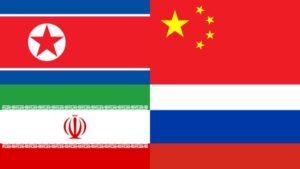
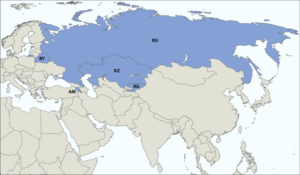



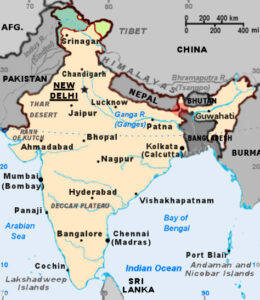



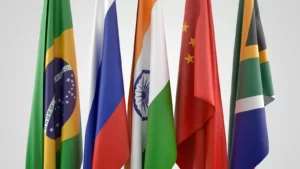


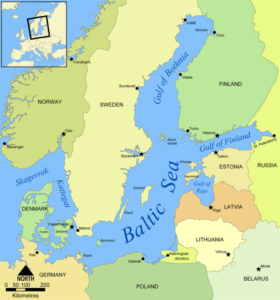




Be First to Comment